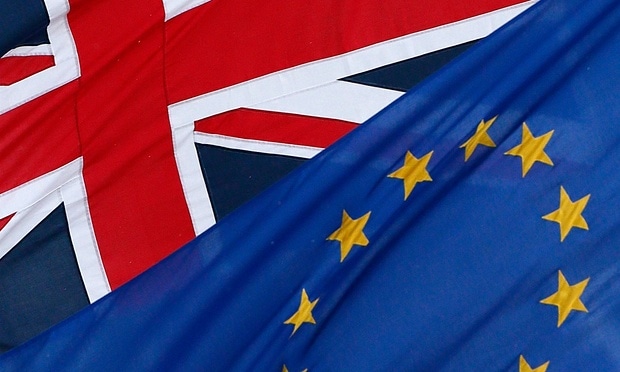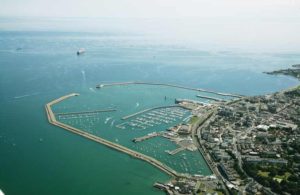PM delivers some clarity on UK’s Brexit negotiations

British Marine’s Senior External Relations Executive, Andrew Harries (supported by detailed analysis by the CBI, of which British Marine is a member), provides an update on Brexit, with the Prime Minister’s Mansion House speech on Friday 2 March providing a bit more clarity on the UK’s negotiation position, yet leaving many questions still unanswered.
British Marine is also publishing today a short report on what a switch to WTO trading rules would mean for the UK’s marine industry. With a ‘No Deal’ scenario still a possibility, which would mean that UK trade with the EU would be subject to normal WTO tariffs, British Marine’s report suggests that the tariffs would have minimal impact on the industry, but that non-tariff barriers (like rules of origin requirements) could cause significant problems.
Download the report from the British Marine Brexit webpage – The Impact on the UK Leisure & Small Commercial Marine Industry of transitioning to World Trade Organisation Tariffs post-Brexit (British Marine members will need to log in to access and download this document)
The Prime Minister’s Mansion House Speech
The Prime Minister took the next step in providing the views of the UK Government on the future economic relationship between the UK and the EU. Her speech was aimed at breaking some of the deadlocks in the negotiations between the EU and the UK, attempting to move away from the accusations that the UK “wants to have its cake and eat it.”
Mrs May softened some of the red lines and set the bar high for the economy and jobs, but failed to detail a customs arrangement that would work for business. On key issues, there is some willingness to compromise. In her opening offer to the EU on the future economic relationship, the Prime Minister struck a serious and confident tone, while acknowledging that there will be compromises. Significantly, that included an acceptance that the European Court of Justice (ECJ) will inevitably have a role to play in determining some future regulation for UK firms.
And for the EU, it will be significant that the Prime Minister reiterated her commitment that the UK will not undertake a bonfire of regulation. British Marine has joined the broader UK business voice, calling for the Government to acknowledge that there will be trade-offs between market access and control. The Prime Minister recognised businesses’ concerns about tariffs, quotas and multiple sets of regulatory checks.
For the first time, the Prime Minister spoke at length on the future for services sectors. The speech reflected many of the priorities that the UK financial services industry has been pushing for, reiterating the enormous importance of the wider sector to the UK and global economy. However, when the Chancellor of the Exchequer recently mooted a free trade agreement with the EU that included financial services, this was quickly shot down by the EU.
On workers’ mobility and qualifications, the Prime Minister set out the right intentions. The UK will seek to “agree an appropriate labour mobility framework that enables UK businesses and self-employed professionals to travel to the EU to provide services to clients in person” and that “it would make sense to continue to recognise each other’s qualifications in the future.”
The UK Government has the right intentions on ensuring “as frictionless a border as possible” between the UK and the EU, and between Northern Ireland and the Republic of Ireland. However, once again, there was no detail about how this was to be achieved. The UK is going to leave the Customs Union and the Single Market and none of the “off the shelf” access models to the EU meet the UK’s needs. So a very creative solution is going to have to be found in order to meet this aim. The Government has previously published two potential options on customs. The “new customs partnership” proposal would involve firms undertaking a considerable burden to enforce different tariffs on those goods that end up in the EU as opposed to the UK.
It is obvious that many challenges remain. The commitment to secure a transition period is welcome, and both the UK and EU have agreed this is essential, although the length of this period differs depending on who is speaking. The Prime Minister reiterated that the implementation period would be “time limited” and “cannot become permanent.” It is paramount that these good intentions on transitional arrangements are urgently turned into a legal, jointly agreed text by the end of this month (March) to remove the risk of a cliff edge for firms.
The Latest Timeline
Between now and the end of March 2019 (the official Brexit point) there is a huge amount of work to be done. Here we break down the timeline, with some of the key landmarks and hurdles to be faced.
May 2018 UK local elections
May 2018 The Customs Bill will enter the Houses of Parliament to be debated by both MPs and Peers
October 2018 The heads of terms on the future economic relationship to be agreed
March 2019 Brexit Day and start of the transition period, with negotiations on the new deal formerly starting
December 2020 Transition period scheduled to end and the UK officially starts its new relationship with the EU
British Marine’s Focus
Since the Referendum result in June 2016, British Marine has been working with its members, the Royal Yachting Association and a host of UK Government Departments to set out key areas of interest for the leisure marine, superyacht and small commercial marine industry. This includes:
• Ensuring UK vessels maintain Union Goods status and securing VAT paid status on second hand boats
• Making sure the industry maintains access to skilled labour post-Brexit
• Preventing non-tariff barriers from being introduced between the UK and EU which will significantly hamper the industry’s future trade outlook
• Scoping out markets for inclusion in future trade deals
British Marine has been working with a number of group association committees to help develop this work. This has led to the production of a number of documents (available to members on the British Marine website) on the key technical and environmental regulations relevant to the UK/EU negotiations.
British Marine continues to work with industry partners, like the Royal Yachting Association, to engage Government Departments (e.g. Exiting the EU, Business, Transport, Home Office and International Trade) to make sure that the issues we have highlighted as being important to the industry are included in all the negotiations.
For further information on any of this work, to ask questions or to feed thoughts/evidence in to British Marine’s activity, members may contact Andrew Harries at aharries@britishmarine.co.uk
This story is from British Marine.










